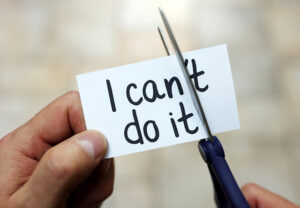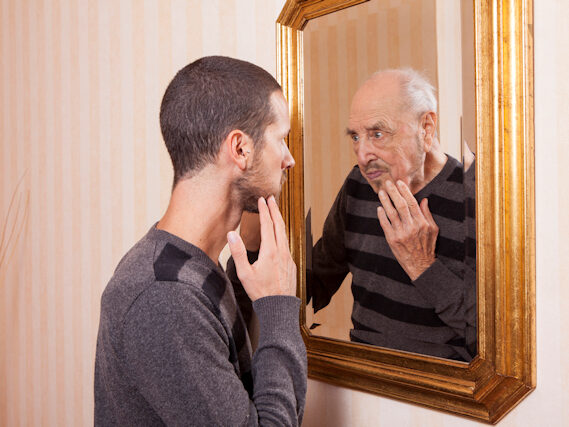Arriving at old age isn’t a destination and in a lot of ways, it’s a moving target. We see older people in the gyms, run marathons and doing all sorts of active stuff. But we also know someone in their 50s that is experiencing heart attacks, strokes, diabetes or even dementia. So, why do some age faster than others? Why do some become ill with chronic diseases before long before others?
Don’t get Old
My mum used to say, “don’t get old, you won’t like it”. But it’s a fact, most of us will get old, and most of us will go beyond our 80s. Wouldn’t be great if someone had written a manual about getting old, but there isn’t. Okay, full disclosure, I’m already old. So, this blog is a bit of “I wish I knew then, what I know now”. I survived my teens; I survived a major RTA in my 20s and then moved through life without too much consideration for my health choices.
In 1990 I left the Royal Air Force to start my civvy career after serving more than 13 years. I had only known school and military life where the majority people that I came across were physically fit and in my age group. Then I had my first “proper” job and felt proud sitting at my own desk writing software with one of the best teams of people I’ve ever worked with. At first it seemed weird working with people who were “old” (over 50), but I soon settled in. Now I’m in my mid 60s and I don’t that feel old, except for a few aches and pains. But I never knew what to expect, a bit of an anti-climax really. It just feels normal. So why do we need a manual?
Healthy Life Expectancy
Well… 1 in 5 men don’t reach the age of 65 and women are at a higher risk of heart attacks post menopause. At the beginning of the 20th century, life expectancy for men was 45 and 49 for women. In many ways we enjoy a higher quality of life than our forefathers did. But is life expectancy a good measure? In other words, we can think of it as:
healthy life + decline = life expectancy
Instead of life expectancy, a better measure is healthy life expectancy (HLE), which is the average number of years a person can expect to live in good health. In the UK HLE is just over 62 for men and nearly 63 for women. Ideally, we would want the healthy life part of the equation to be longer and the decline to be shorter.
A large part of ageing is impacted by noncommunicable diseases (NCDs), such as Diabetes, Cardiovascular, Cancer and Alzheimer’s. These are diseases that usually take years to develop silently and without warning. It’s not until we have a blood test or have our blood pressure taken or have a health event that we know that things are going downhill.
Medicate

For those with NCDs, there’s plenty of medication and that’s great. Millions of people are living longer because of modern medicine. But there are a couple of issues with this. Most medication, for blood pressure, statins and metformin, control disease but do not cure it. As soon as you stop taking these medicines the problem comes back. In fact, it can be dangerous to stop taking medication for NCDs without professional medical guidance. Most medication comes with varying degrees of side effects that can impact the quality of life. Surely prevention of NCDs must be a far better way to be healthier and not live with limitations chronic diseases.
I’m sure that anyone who has suffered a heart attack, stroke, etc., would have done things differently if they had the knowledge to prevent it or slow its development. But if you’re in your 20s, 30s, or even 40s, you have bigger priorities. Relationships, family, career, owning a home and having a satisfied, fulfilled and happy life are the drivers of being an adult. The first sign that life may not be that simple is when we start noticing the decline of our parents and senior generation, or we may see our friends and relatives with poor health. But then we just say these things happen to other people and not me.
It may be more alarming when we realise that the family could be more at risk from things like cardiovascular disease and diabetes, etc. Others may feel some resignation because there is a genetic link and believe that nothing can be done to prevent these diseases. Or can it? This gives rise to the question; “will my children or do I have to suffer with the same health conditions that my parents experienced?” If the answer is no, which it should be, then there must be some knowledge we can gain and pass down to our children for their future wellbeing.
You may have noticed the warning signs. That’s what New Year’s resolutions are about. “I’m going to join a gym”, “I’m going on a diet”, “I’m going to cut down on the booze”, and all the other lifestyle changes people commit to. But many don’t stick with it. Sadly, big lifestyle changes are usually unsustainable and we revert to our old ways.
Overcoming the Barriers

With knowledge we can bring about change that produces better outcomes. But there are barriers that we can put up to impact how sustainable changes can be:
- What will be, will be. Do you believe that whatever you do, won’t change your health outcomes? If you keep piling on the sugar and carbs, ultra processed food and live a sedentary lifestyle, you will never know that the outcome could have been different. You can see the benefits of lifestyle changes quickly. Just cutting the carbs and sodas will show an improvement in just a couple of weeks. Add a bit of exercise a couple of times a week, and you’ll find you won’t get puffed out so easily. By taking baby steps to change your long-term health will benefit.
- I really miss my beer / cake / sodas, etc, etc. Cravings are a bummer, there’s no other way to describe them. Our brains are the experts on exploiting our weaknesses and they will pile on the pressure until we concede and eat the doughnut, smoke the cigarette or down the energy drink. Then we’re hooked again and unable to break free. But cravings can be controlled and with time they lose their power. Many think they can substitute to kill the craving, but in reality, it just prolongs the issue. A good example is with sodas. Research has shown that zero calory or zero sugar drinks does little to lose weight, and some put weight on. So, why is that? If you consume something sweet, your body will increase your insulin levels to deal with the extra blood sugar. But if you consume a “zero” drink, the insulin will still increase to transport the blood sugar. However, if there is no sugar for the insulin, the body will excrete the hunger hormone ghrelin to increase your appetite. Therefore, it’s better to break sugar addiction by losing the “sweet tooth” and keeping your insulin levels lower.
- I’m happy going with the flow. It’s been said that high blood pressure is the silent killer because it has no symptoms. It’s usually caught when we have a routine test when we see the doctor about something else. It’s the same for most NCDs, we don’t see them developing and then one day we’re on medication for something that was preventable. So “going with the flow” isn’t really a good strategy for living a chronic disease free in later life.
- Healthy living is expensive. Perception is everything with health and wellbeing. If you joined a gym, ate all the superfoods and bought all the latest supplements at your local health store, then it would be expensive. It doesn’t have to be that way. While gyms are a fantastic way exercise, they’re not the only way. I do High Intensity Interval Training (HIITs) 4 times a week. The only equipment I use is a yoga mat and step. Walking and jogging are free, and there are lots of different ways to exercise that are cheap. Eating good nutritious wholefoods, doesn’t have to be expensive and is nutrient rich. Therefore, by avoiding ultra processed foods and not overeating, your will save money. And the benefit of eating a healthy nutrient rich wholefood diet is that you won’t need to take supplements.
Change is a Choice
Your role in passing on the Family Manual of Ageing is a choice; you won’t pass it on if there is no benefit in it for you. It will have no benefit to your children if they don’t see how it has benefited you. Then the poor health choices get passed down to another generation and so on.
Change is inside us already, it’s about changing how we think about things, and seeing what is possible. It takes a bit of self-belief that we can build upon. You may not see the need for change, but there’s information all around us that we need to eat better and be active. Perhaps this blog has given rise to think about your own health? Many people search for change and healthier lifestyle choices, but don’t know where to start.
The Pure Body Fix® Approach
At Pure Body Fix® we are now offering Nutrition, Health and Wellbeing coaching for individuals, either face to face or online. Our goal centred coaching packages are designed around your needs to facilitate changes that are achievable and sustainable. You can book a free discovery call with Martin to find out how the Pure Body Fix® approach and help you. To book your free 15-minute call, please follow the link to our booking page: Our Booking Page






